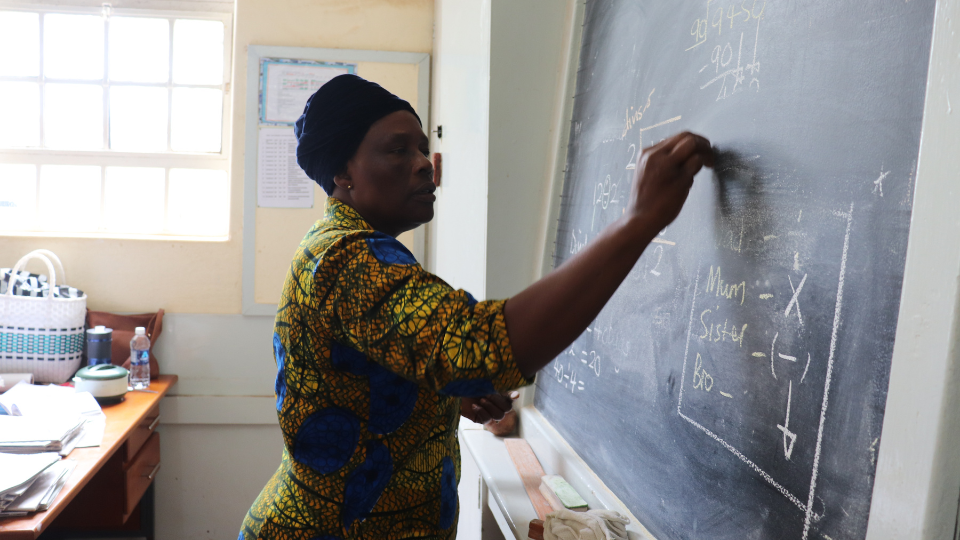Teachers working in refugee settings play a particularly crucial role in the lives of refugee children and young people, but attracting and deploying qualified teachers to work in these settings can be challenging. In this article, the fourth in a series on sustainable solutions to the challenges of teacher management in refugee settings, we explore this issue and make several recommendations, based on insights from four countries from our research with IIEP-UNESCO.
Recommendation 1: Align recruitment and deployment criteria and processes to national standards
Where the recruitment process is not managed by the government, it is important to ensure that the recruitment criteria and processes are aligned with the national education system standards. This requires clear communication on the mandates of the different entities, as well as clear dissemination and awareness-raising of existing recruitment and deployment policies and procedures. In this context, the national body responsible for teacher recruitment should play a key role in recruitment processes in refugee settings.
Recommendation 2: Make recruitment and deployment decisions based on needs at the sub-national and local levels
Systematic consultation between the national and sub-national levels should take place to ensure that national recruitment processes are equitable, needs-based and flexible enough to respond to fluctuating numbers of refugees. This involves strengthening the capacities of sub-national level actors, including head-teachers, to collect school-level data to inform national decision-making.
Recommendation 3: Develop and clearly communicate the process for the recognition of qualifications
Refugee teaching credentials are not systematically recognised by host countries, limiting the number of refugees with teaching qualifications from their home country who can be recruited as professional teachers. In line with the International Labor Organisation/UNESCO Recommendation concerning the Status of Teachers (paragraph 18) and with agreements in the East African Region such as the IGAD Djibouti Declaration and Plan of Action on Refugee Education and the East African Community Treaty Article 102, governments should strengthen existing mechanisms or establish processes to support cross-border teacher accreditation and certification.
In Uganda, for example, the government has put into place mechanisms to facilitate the recognition of refugee teachers' foreign certifications. This initiative is supported by the Uganda Higher Education Qualifications Framework (UHEQF) and the National Council for Higher Education (NCHE), in partnership with the International Labour Organisation, with the additional support of development and humanitarian partners.
Recommendation 4: The roles and responsibilities of teaching assistants should be clearly defined during the recruitment process
In many refugee settings, teaching assistants are employed and provide essential support to teachers faced with overcrowded and multilingual classes. However, at times their role descriptions can be unclear and, in some settings, teaching assistants have become de facto teachers. When assistants take on the role of teacher, there are disparities in recognition and salary that can be demotivating and lead to staff attrition, as well as a decrease in the quality of education provision. It is therefore key that the government body responsible for recruitment clearly defines the role of teaching assistants and ensures that the role is understood at the school level.
“We were told classroom assistants were to only translate, however on reaching the school most of us were deployed as teachers due to teacher scarcity. This was a difficult situation for we end up working as teachers and not teaching assistants.” – Classroom assistant, Nakivale, Uganda
Recommendation 5: Address female teacher shortages in refugee settings and host communities
In many contexts, there are significant challenges in hiring female teachers, especially for teaching positions in remote, insecure, and/or hard-to-reach areas, because women are especially impacted by insecurity and the lack of access to healthcare and other services. Furthermore, in many contexts, girls face additional challenges to attain the necessary qualifications to become teachers. These challenges need to be addressed and female students supported to increase the number of potential female recruits. Additionally, the importance of female teachers needs to be taken into consideration when recruitment processes for refugee teachers are harmonised with national standards. Addressing female teacher shortages also requires family-friendly strategies to support female teachers with adequate lodging and childcare to encourage both recruitment and retention. Providing female teachers with training opportunities to progress into senior roles might also attract more women to the profession.
“The furthest I can post a female teacher is Letea and Makutano area and along the road to Lokichogio where they can get a house. In Nanaom, we have houses but cannot take a female teacher due to insecurity.” (Teacher Service Commission Official, Kenya)
These insights are drawn from a series of research reports conducted in partnership with IIEP-UNESCO as part of multi-year study. The reports and accompanying policy briefs can be accessed using the links below:










